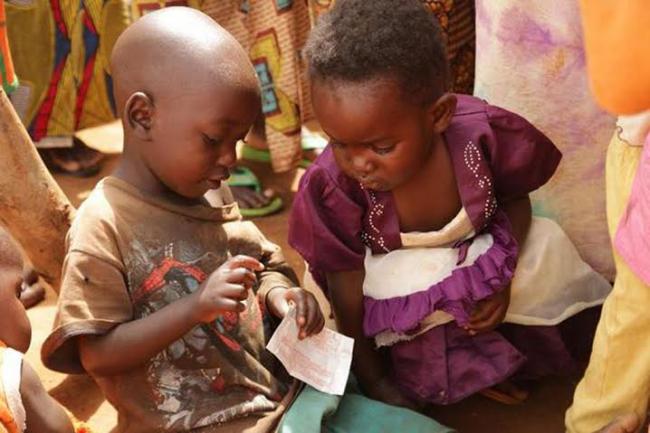19 Nov 2015, 07:18 am Print

“Children must not pay the price for the crisis in Burundi,” said UNICEF’s Regional Director in Eastern and Southern Africa, Leila Gharagozloo-Pakkala in a news release adding that UNICEF is deeply concerned about the impact of violence and increasing poverty and vulnerability on children.
According to UNICEF, since the beginning of the crisis in Burundi in April, child rights violations have multiplied, with children being caught up in violent clashes and raids, schools being hit by grenade blasts and more than 100 children being arbitrarily detained, at times for long periods alongside adult prisoners.
“Burundian law establishes clear respect for children’s rights, and the protection of children from violence. Such laws must be respected,” added Gharagozloo-Pakkala.
Additionally, UNICEF reported that food prices in the region are accelerating sharply with more than four out of five Burundians already living on less than USD 1.25 a day, making it very difficult for many families to adequately feed their children.
According to the International Monetary Fund (IMF) predictions, the Burundian economy is slated to shrink by 7.2 per cent this year, adding greater strain on the Government budget and social services in the country.
UNICEF also raised concern about the shortages of essential medicines for children and mothers and added that it is imperative that there is continued investment in children, from protection to healthcare, even at such times.
“There is a strong case for support, now in these troubled times more than ever,” said Gharagozloo-Pakkala.
UNICEF estimates indicate that more than 200,000 people from Burundi have fled into neighbouring Tanzania, Rwanda, Uganda and the Democratic Republic of Congo, including 6,000 unaccompanied or separated children.
UNICEF reported that these children face mountainous terrain and security checkpoints on fleeing Burundi, as well as dangers of sexual abuse, trafficking or further violence.
Additionally, large number of internally displaced, with around 15,000 people are currently residing in Makamba province on the border of Tanzania, said UNICEF.
At the same time, the UN and its partners are poised for an influx in the near future in neighbouring countries, which is expected to further stretch existing humanitarian support, such as healthcare, schooling and clean water.
Lastly, UNICEF said that it is appealing for USD 25 million to support its humanitarian response for children and families affected by the crisis in Burundi, which can facilitate lifesaving services and supplies for children in Burundi as well as Burundian refugees in Tanzania, Rwanda and the Democratic Republic of the Congo.
At present, UNICEF said that the appeal is barely one-quarter funded.
Photo: UNICEF/NYHQ2015-1378/Pflanz
- Fire at Hindu teacher’s home rekindles concerns over minority attacks in Bangladesh
- UK MP Bob Blackman raises alarm over rising attacks on Hindus in Bangladesh
- Winter without gas: Hazara women stage sit-in outside SGC office in Pakistan
- Bangladesh: Hindu Awami League leader’s death in jail sparks outrage, family blames authorities
- Who is Ubaidullah Ahmadi? Afghan journalist detained in Pakistan





-1763561110.jpg)
